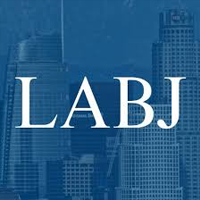Media Watch
Pomona professor 3D printing masks to help hospitals deal with coronavirus
Los Angeles Daily News -
And UCI Beal Applied Innovation, working in conjunction with The Henry Samueli School of Engineering and Claire Trevor School of the Arts, is producing 3D-printed face shields for workers at UCI Medical Center. Read More
Departments across UC Irvine design, build face shields for medical staff in Orange
Daily Pilot -
UCI Medical Center in Orange is receiving a shipment of 5,000 face shields from an unlikely source — the very medical students it works to educate. … The idea started with neighbors and first-year medical students, Ermin Dzihic and Tim McMullen. … UCI Beall Applied Innovation leaders put the two into contact with faculty at the Henry Samueli School of Engineering and Claire Trevor School of the Arts, who helped develop the design and mass production of the face shields. [Subscription required, you can request an electronic copy of the article by sending an email to communications@uci.edu.] Read More
Voice for Science: A Welcome with Advice from Alumni
AGU Blogosphere -
We asked some members from previous cohorts what advice they might have for our new 2020-2021 class. Here’s what they had to say: … “I suggest that the cohort members keep track of their own activities in a Word doc or something because they’ll accomplish a lot and it’ll be hard to remember everything you did when the year is over. Blog post style would be great too, so you can link the pictures, videos, and other people’s social media accounts.” – Kimberly Duong, Graduate Student Researcher, Department of Civil and Environmental Engineering, University of California, Irvine Read More
Virgin Orbit helps in the fight against COVID-19
Popular Mechanics -
Virgin recently formed a group called the Bridge Ventilator Consortium that worked closely with medical-device experts and physicians from the University of Texas in Austin and the University of California Irvine (UCI) to come up with a quick solution to the ventilator shortage being felt around the world. … According to Dr. Brian J.F. Wong, an assistant chairman of otolaryngology at UCI, “Getting ventilators out there is very important to save lives. The demand outstrips supply, so it is important the government, industry, academia, non-profits and the community work together to identify solutions, and design and construct them as fast as possible.” Read More
As medical supplies dwindle, universities build ventilators, swabs
EdScoop -
Similar efforts to develop an easy-to-produce ventilator with open source blueprints are underway at the University of California Irvine. “The need for ventilators is a medical Dunkirk,” UCI surgeon Brian said in a press release. “It’s a once-in-a-generation call to arms that we all must respond to.” Read More
The High-Stakes Race to Build More Ventilators
Wired -
Along the way, [Kevin] Zagorski and his colleagues took direction from the Bridge Ventilator Consortium, an ad hoc group of doctors and engineers based at UC Irvine and the University of Texas Austin. The consortium coined the term “bridge ventilator,” for a simple device with fewer capabilities than the more complex machines typically used in hospitals, but good enough for many patients with relatively mild issues, including some Covid-19 patients. “Not everyone needs the Cadillac,” says Govind Rajan, an anesthesiologist at the UC Irvine Medical Center. Read More
Virgin Orbit to Make Ventilators for Covid-19 Patients
Los Angeles Business Journal -
Virgin Orbit said it has developed a “bridge ventilator,” a medical device that can be mass produced and is different from the costlier ventilators used in intensive care units. … The company said it has been consulting with the Bridge Ventilator Consortium as it designs the device. Established in early March, the BVC is a group of doctors, engineers and scientists from the University of California Irvine and the University of Texas. Read More
Virgin Galactic’s Satellite Unit Has Made a COVID-19 Ventilator for Non-ICU Use
Observer -
The goal of mass-supplying a simple ventilator is to free up more intensive-care ventilators for severely ill patients. “We face a slow-motion Dunkirk, and getting ventilators out there is very important to save lives,” said Brian J.F. Wong, a professor at UC Irvine and a member of the Bridge Ventilator Consortium. “The demand outstrips supply, so it is important the government, industry, academia, non-profits and the community work together to identify solutions, and design and construct them as fast as possible.” Read More
Ceramic lattices that are stronger than diamond
Chemical & Engineering News -
Now a team reports pushing these lattices to their ultimate limit, generating a ceramic material that’s as strong as theorists believe to be physically possible. The material is stronger than diamond while being up to 70 percent air. … While earlier lattices were made up of cylindrical beams, the new design uses connected ceramic plates. This design makes it 639% stronger and 522% stiffer than the best beam-based lattices. In fact, it boasts the highest strength theoretically possible for any such architected materials, says Jens Bauer, a mechanical and aerospace engineer at the University of California, Irvine. Read More
In the Covid-19 pandemic, ventilators are the ‘deciders between life and death’
The Independent -
At the moment, companies around the world are scrambling to build ventilators quickly, including Virgin Orbit, a firm backed by billionaire Richard Branson which usually manufactures rockets. Virgin Orbit, however, is building a simple version of the machine. “This one is going to basically be for all the patients who need a ventilator but do not need a top-line ventilator. That will free up all these top-line ventilators for the sickest of the sick,” said Dr. Govind Rajan, the director of clinical affairs at the UC Irvine Medical Center. Read More










